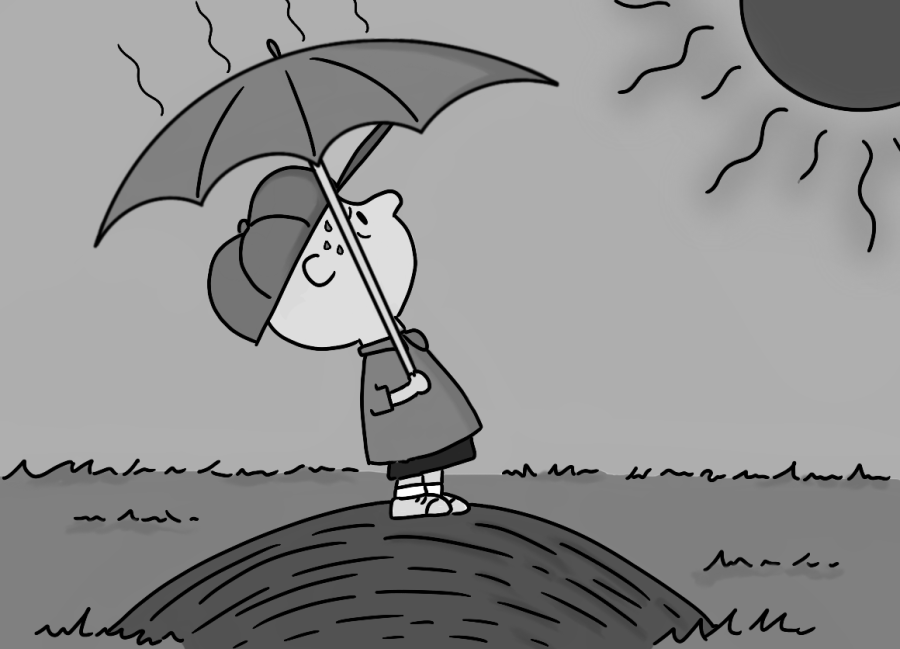SPORTS: To play or not to play?
Students find ways to adapt to unpredictable weather
Sweat drips down a student’s face as the unbearable heat of the sun surrounds them, wishing.they were in the cool AC. SCHS athletes voiced their thoughts on the challenges of climate change and extreme weather along with possible solutions, such as indoor facilities to better prepare for the future.
Senior Noel Cevallos is currently participating in his fourth year of cross country and pointed out some difficulties the weather has caused.
“The practices were slightly shorter due to the weather since we (cross country) are basically a fully outdoor sport just running on the streets of Santa Clara,” Cevallos said. “Our coach booked the small gym for a few practices and the weight room so that we could have slight AC and not just be scorched by the heat.”
Cevallos has also had to adjust to inclement weather, such as severe heat, ranging from 90 to 100 degrees F, causing challenges.
“Most of the time, it is really hot during the day, so you try working out either really early in the morning, or late at night,” Cevallos said. “If it is raining, then sometimes you look at the weather and then try to find out which hour it is going to stop and plan then.”
Senior Sean McCormick has played soccer at SCHS for three years, with the plan to return for his fourth season, and the unpredictable weather has forced him and his team to adjust in the past.
“Sometimes we will reschedule games if we know there is going to be specific weather at the time,” McCormick said. “Or sometimes they’ll just tell us to man up, put on extra clothes for the game. We have a thing where we will put on our away jerseys under our home jerseys and that helps.”
The weather occasionally affects McCormick’s performance when he plays.
“The wind is the main thing,” McCormick said. “Especially if I am trying to play against the wind, it can feel like you are fighting against nothing.”
Cevallos has also found that his performance can be skewed due to extreme weather.
“I think I was slightly more fatigued just due to sweating more,” Cevallos said. “The heat makes your body use more water, so you just sweat a lot more and you have to drink a lot more water.”
Cevallos also believes school teams that are more outdoor-oriented should have backup plans, such as indoor practices in case of extreme weather.
“I think it could be beneficial not only for the safety but also for cross-training,” Cevallos said. “There are many things that you could do indoors, like weights and stuff that you do not necessarily have to do outdoors.”
McCormick agrees that school teams that practice outdoors should have an indoor facility, but he acknowledged it can occasionally be far-fetched, or inaccessible.
“I think an indoor soccer field would be great,” McCormick said. “It would be really beneficial to us. Considering the weather isn’t that crazy here and knowing (what) that money could be spent on, I don’t think it would be the best use of our resources, but it would still be really beneficial.”


